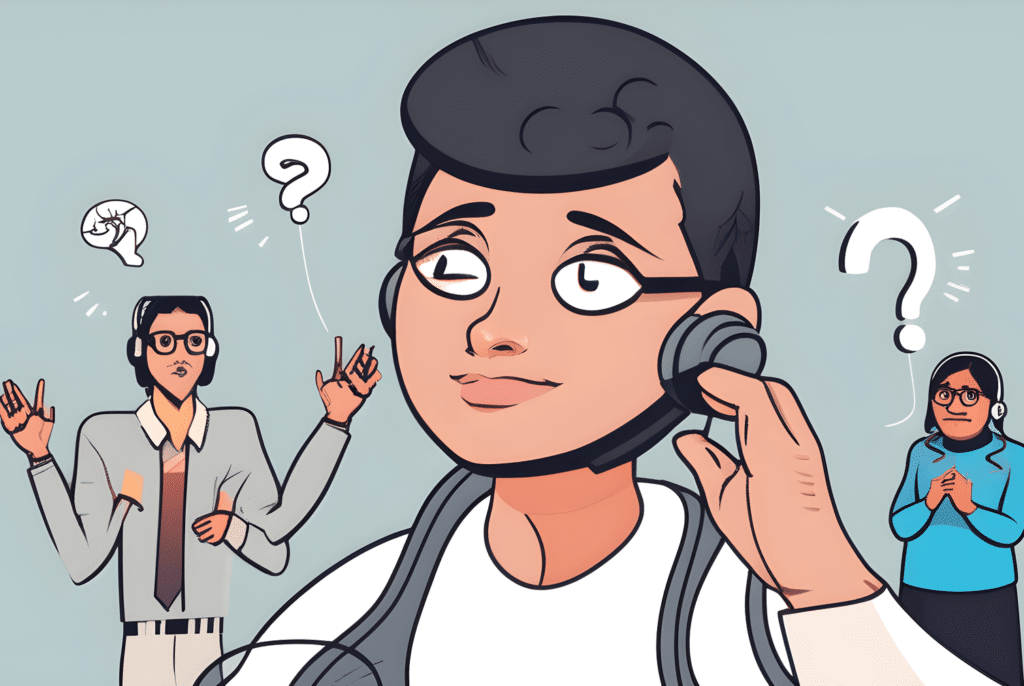Hearing the phrase “shut up” can be a jarring experience, whether it’s said in anger, frustration, or simply as a result of a heated moment. The impact of those two words can range from confusing to hurtful, and it can leave you feeling insulted, upset, or even embarrassed. While everyone reacts to negative comments differently, it’s essential to know how to handle such situations with grace and confidence.
In this blog post, we’ll discuss various ways to respond to “shut up” in a healthy and productive manner. We’ll explore how to manage the emotions that arise in these situations and provide you with a range of responses to help you navigate the conversation. Whether it’s from a friend, family member, or colleague, how you respond can either escalate or de-escalate the situation.
Understanding Why People Say “Shut Up”
Before diving into possible responses, it’s essential to understand why someone might say “shut up” in the first place. Understanding the context behind these words can help you respond more effectively.
1. Frustration or Anger
- One of the most common reasons someone might say “shut up” is out of frustration or anger. If emotions are running high, people often say things they don’t mean in the heat of the moment.
2. Trying to End a Conversation
- Sometimes, people may say “shut up” when they don’t know how to end a conversation or because they simply don’t want to engage any further. It can be a quick way to shut down communication, especially if they’re feeling overwhelmed.
3. Joking or Playfulness
- In some cases, “shut up” might be said in a playful or joking manner. Friends and close acquaintances might say this with no ill intention, and it’s important to understand the tone behind the words.
4. Lack of Respect
- Unfortunately, there are instances where “shut up” is used as a means of disrespect. This might happen in arguments or when someone is trying to belittle or insult you.
5. Miscommunication or Tension
- Misunderstandings between people can also lead to someone saying “shut up.” Tension or confusion may cause words to be said without thinking clearly.
By understanding the potential causes behind this phrase, you’ll be better equipped to respond in a way that is not reactive but thoughtful.
How to Respond to “Shut Up” Effectively
Regardless of the context, how you respond to someone saying “shut up” can significantly impact the outcome of the interaction. Here are several different approaches you can take depending on the situation.
1. Staying Calm and Collected
One of the most important things you can do when someone says “shut up” is to remain calm. Reacting with anger or frustration will likely escalate the situation, so maintaining your composure can help defuse any tension.
How to Respond:
- Take a deep breath: Give yourself a moment to collect your thoughts before responding. This can help prevent an emotional reaction.
- Keep your tone neutral: Respond in a calm, non-confrontational way to show you’re not trying to engage in an argument.
Example Responses:
- “I hear you, but I’m not going to shut up. Let’s talk about this calmly.”
- “I don’t appreciate being spoken to like that. Can we try to discuss this without raising our voices?”
- “I understand you’re upset, but yelling at me won’t help. Let’s take a step back.”
Remaining calm helps prevent the situation from spiraling out of control and shows the other person that you’re not easily provoked.
2. Asking for Clarification
Sometimes, “shut up” is said out of frustration or in the heat of the moment. Asking for clarification can help defuse the tension and open up a more constructive conversation.
How to Respond:
- Ask them to explain why they said it: This shows that you’re open to understanding their feelings but also signals that their words have had an impact.
Example Responses:
- “I don’t understand why you said that. Can you explain what’s going on?”
- “I don’t think I deserve that response. What’s bothering you?”
- “If I’ve said something wrong, let me know so we can talk about it.”
Asking for clarification can give the other person a chance to express their feelings without escalating the situation. It also encourages open dialogue.
3. Using Humor to Diffuse the Situation
If the situation is lighthearted and you feel comfortable, using humor can be an excellent way to defuse tension and keep the atmosphere relaxed. Humor can lighten the mood and show that you’re not taking the comment too seriously.
How to Respond:
- Use self-deprecating humor: Playfully acknowledge the situation, but do so in a way that doesn’t encourage further disrespect.
Example Responses:
- “Okay, I’ll shut up… but only because I can’t compete with your awesomeness.”
- “Oh no, my superhero powers have been neutralized. I guess I’ll have to stop talking now.”
- “Well, I guess I was getting too chatty! My bad!”
Humor helps to take the edge off the situation, making it more likely for the person to relax and apologize or switch gears.
4. Responding with Confidence
If the comment was meant to belittle or insult you, responding with confidence and asserting your boundaries is crucial. Letting the person know that their words are not acceptable can help ensure you maintain respect in the conversation.
How to Respond:
- Stand up for yourself politely: Let the person know that their words were hurtful and you expect to be treated with respect.
Example Responses:
- “I don’t appreciate being spoken to like that. Let’s keep things respectful.”
- “I think we can have a better conversation without using words like that.”
- “Please don’t speak to me that way again. Let’s find a way to talk without being disrespectful.”
Responding assertively shows that you won’t tolerate disrespect, and it sets a clear boundary for future conversations.
5. Walking Away from the Situation
In some situations, the best response is no response at all. If the person is being rude or disrespectful, and the conversation is not productive, it may be best to walk away and revisit the discussion when emotions are calmer.
How to Respond:
- Remove yourself from the situation: Sometimes, giving the other person space is the best option for both parties to cool down and reflect on the situation.
Example Responses:
- “I’m going to take a step back now. We’ll talk when we’ve both calmed down.”
- “I think we need a break. I’m not going to engage in this conversation right now.”
- “I don’t want to continue this argument. Let’s talk later when things are calmer.”
Walking away doesn’t mean you’re backing down; it’s simply a way to avoid saying something in the heat of the moment that you might regret.
6. Responding When It’s Said in Jest
If the person says “shut up” in a playful manner or as a joke, your response will depend on the tone of the conversation. If they’re being lighthearted, it’s okay to respond in kind.
How to Respond:
- Respond with humor: Lightly play along if it’s meant to be a joke.
Example Responses:
- “Haha, you’re lucky I love you. But seriously, stop making me laugh!”
- “Oh, I see how it is. Keep it up, and I’ll have to come up with my own joke.”
- “Well, I’ll keep talking anyway. You can’t stop me!”
Humor is an effective way to keep the mood light and avoid any awkwardness when “shut up” is not meant to be taken seriously.
7. Offering Empathy and Understanding
Sometimes, “shut up” is said out of frustration or emotional overload. In these cases, responding with empathy can help open the door for better communication.
How to Respond:
- Acknowledge their emotions: If you sense that the person is upset, offer empathy and ask what’s causing them to react in such a way.
Example Responses:
- “I understand that you’re frustrated. Let’s talk about what’s bothering you.”
- “I can see something’s making you upset. Want to share what’s going on?”
- “It sounds like you need some space. Let’s take a breather and talk when you’re ready.”
Offering empathy shows that you’re interested in understanding their perspective, which can lead to a more constructive conversation.
Table: Responses to “Shut Up” Based on Situation
| Scenario | Response Example |
|---|---|
| Frustration or Anger | “I understand you’re upset, but let’s talk calmly.” |
| Joking or Playful | “Oh, I’ll keep talking anyway. You can’t stop me!” |
| Respectful Boundary Setting | “Please don’t speak to me that way. Let’s have a respectful conversation.” |
| Humorous Response | “Okay, I’ll shut up… but only because I’m too awesome!” |
| Empathetic Response | “I can see you’re frustrated. Let’s talk about what’s going on.” |
| Walking Away | “I’m going to take a break. We can talk later when we’ve both calmed down.” |
Conclusion: Responding to “Shut Up” with Confidence and Poise
How you respond to “shut up” largely depends on the situation and your emotional state. Whether it’s a moment of frustration, a playful remark, or an intentional insult, it’s important to choose a response that aligns with your values and the relationship you have with the person involved.
By staying calm, asserting your boundaries, using humor, or showing empathy, you can navigate such moments with grace. Remember, your response has the power to shape the outcome of the conversation, and taking the high road often leads to better understanding and stronger relationships.
Whatever you choose to say, remember that you deserve respect, and your response is an opportunity to maintain or restore peace while being true to yourself.


